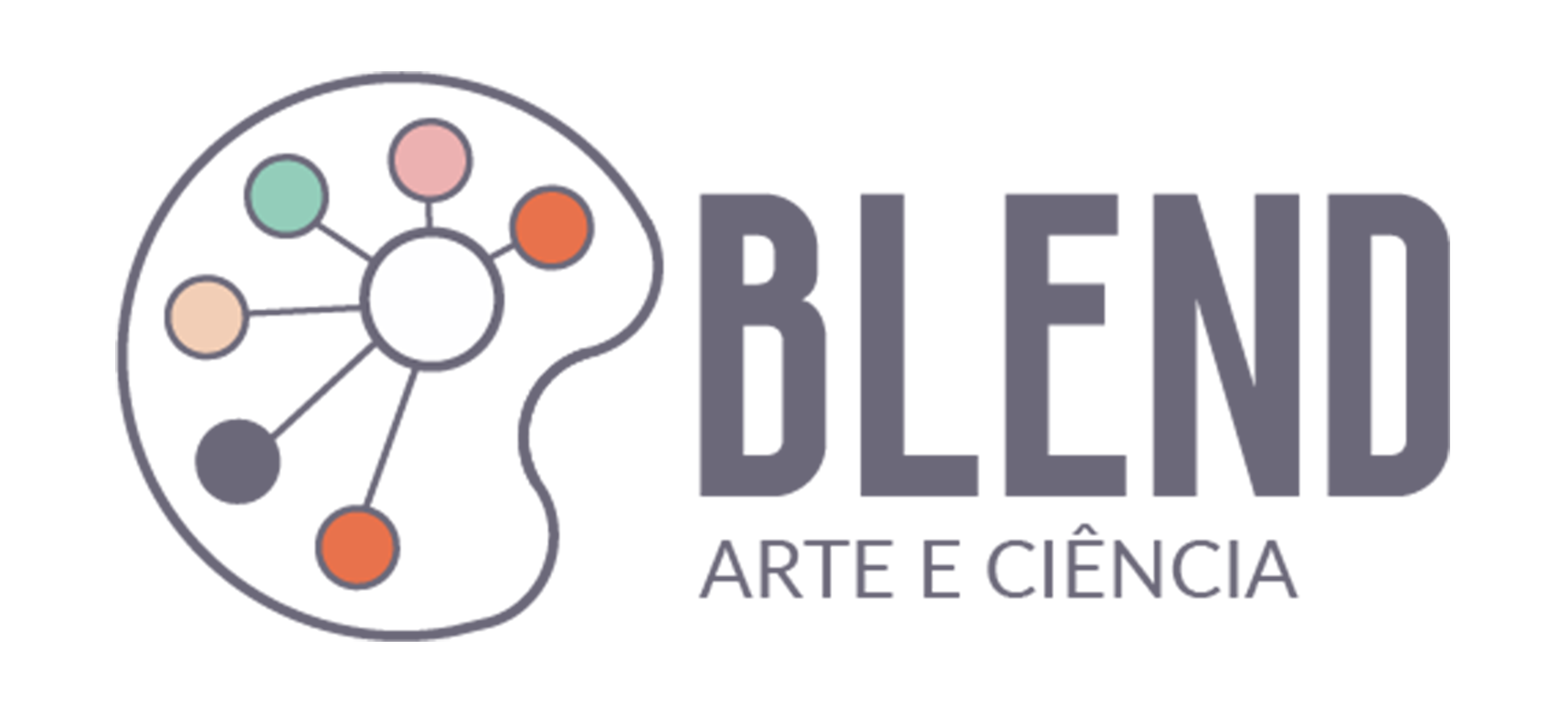Speakers Bio
Marta de Menezes
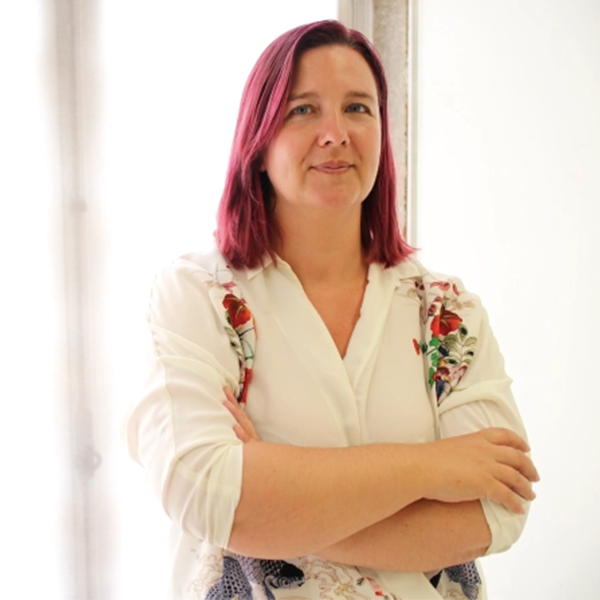
PT//
Marta de Menezes (1975) é uma artista portuguesa, licenciada em Belas Artes pela Universidade de Lisboa e com um Mestrado pela Universidade de Oxford. De Menezes é a diretora da Cultivamos Cultura, uma associação dedicada à arte experimental em Portugal e da Ectopia, dedicada à facilitação de trabalho colaborativo entre artistas e cientistas. Marta de Menezes trabalha na intersecção entre a arte e a biologia desde o final dos anos 90, no Reino Unido, Austrália, Holanda e Portugal explorando as oportunidades conceptuais e estéticas oferecidas pelas ciências biológicas para a representação visual nas artes.
O seu trabalho tem sido exposto em grandes salas em todos os continentes, apresentado na maioria das antologias dedicadas à bioarte, discutido em dissertações de doutoramento e considerado um exemplo de pesquisa nas artes visuais. Entre as exposições mais recentes, De Menezes foi convidada para o Festival Ars Eletronica 2019: Out of the Box e organizou dois Ars Eletronica Gardens (Lisboa e São Luís) em 2020. Foi convidada para representar Portugal na London Design Bienalle 2016 e expôs na Beijing Biennale of New Media Art 2016. Além do seu trabalho enquanto artista, De Menezes foi curadora de grandes exposições internacionais como a European Capital of Culture (Portugal), Kontejner Festival (Zagreb), Verbeke Fundation (Bélgica) e nestes últimos três anos tem feito a curadoria do FACTT – Transnational and Transdiciplinary Festival of Art and Science que teve lugar em Lisboa, Nova Iorque, Cidade do México, Berlim e Toronto.
EN//
Marta de Menezes (born 1975) is a Portuguese artist, with a Degree in Fine Arts from the University of Lisbon and a MSt from the University of Oxford. De Menezes is director of Cultivamos Cultura, the leading institution devoted to experimental art in Portugal and Ectopia, dedicated to facilitate the collaborative work between artists and scientists. Marta de Menezes has worked in the intersection of art and biology since the late 90s, in the UK, Australia, the Netherlands, and Portugal, exploring the conceptual and aesthetic opportunities offered by biological sciences for visual representation in the arts.
Her work has been widely exhibited in major venues in all continents, presented in most anthologies devoted to bioart, discussed in doctoral dissertations, and considered an example of research in the visual arts. Among the most recent international exhibitions, de Menezes was invited for the 2019 Ars Electronica Festival: Out of the Box, and organized two 2020 Ars Electronica Gardens (Lisbon and São Luis). She was invited to be the official representation of Portugal at the London Design Biennale 2016 and exhibited at the Beijing Biennale of New Media Art 2016. DeMenezes was nominated in 2015 by Time and Fortune magazines for the Art and Technology Awards 2015. Besides her work as artist, de Menezes curated major international exhibitions including for European Capital of Culture (Portugal), Kontejner Festival (Zagreb), Verbeke Foundation (Belgium) and this last three years the editions of FACTT –Transnational and Transdisciplinary Festival of Art and Science that took place in Lisbon, New York, Mexico City, Berlin and Toronto.
Dalila Honorato
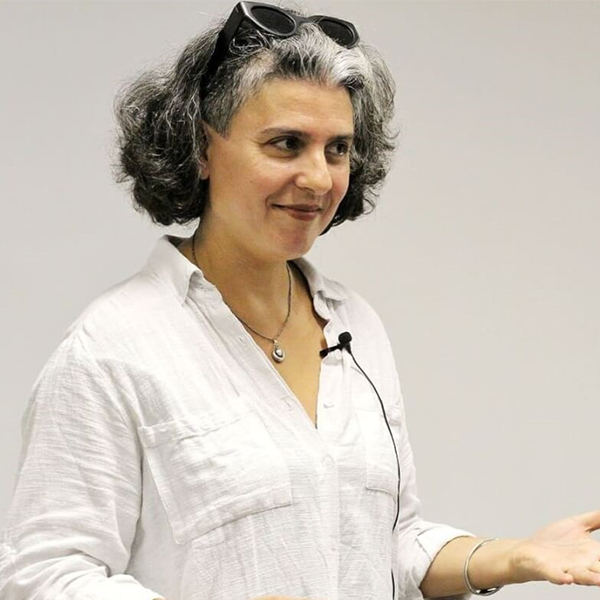
PT//
Dalila Honorato, Ph.D., é uma facilitadora de espaços seguros para acolher a interação de ideias em torno de questões liminares no quadro da Art&Sci. A sua investigação centra-se na encarnação, monstruosidade, o espantoso e o equilíbrio acrobático entre a fobia e a parafilia. É professora associada em Estética e Semiótica Visual na Universidade Jónica, Grécia, e colaboradora do Centro de Filosofia das Ciências, Universidade de Lisboa, Portugal. Um dos membros fundadores do Laboratório Interactivo de Artes, chefe do comité diretor da conferência “Taboo-TransgressionTranscendence in Art & Science”, e, juntamente com Marta de Menezes, a conceptualizadora e desenvolvedora do projeto “FEMeeting”: Mulheres na Arte, Ciência e Tecnologia”.
Ela é membro titular do Conselho de Administração da “Galeria Municipal de Corfu” (2020-2023). Foi oradora convidada no festival “Extravagant Bodies”: Extravagant Love (Croácia), no Coalesce Center for Biological Art, Universidade de Buffalo, The State University of New York (EUA), na série de seminários de BioDesign, Parsons, The New School, New York (EUA), no simpósio Arts Based Research In Times Of Climate & Social Change no CNSI – UCLA (EUA), no The Artist as Host: ASFA Lectures Series, Athens School of Fine Arts (Grécia), no a.pass Research Center (Bélgica), no CIAC, Universidade do Algarve (Portugal), na Penny W Stamps School of Art & Design, Universidade de Michigan, (EUA), na FACTT 2018 Berlim na Humboldt-Universität zu Berlin (Alemanha), etc.
EN//
Dalila Honorato, Ph.D, is a facilitator of safe spaces for hosting the interaction of ideas around liminal issues in the frame of Art&Sci. Her research focus is on embodiment, monstrosity, the uncanny and the acrobatic balance between phobia and paraphilia. She is Associate Professor in Aesthetics and Visual Semiotics at the Ionian University, Greece, and collaborator at the Center of Philosophy of Sciences, University of Lisbon, Portugal. One of the founding members of the Interactive Arts Lab, she is the head of the steering committee of the conference “Taboo-TransgressionTranscendence in Art & Science”, and, together with Marta de Menezes, the conceptualizer and developer of the project “FEMeeting: Women in Art, Science and Technology”.
She is a full member of the Board of Directors of the “Municipal Gallery of Corfu” (2020-2023). She was a guest speaker at the festival Extravagant Bodies: Extravagant Love (Croatia), at the Coalesce Center for Biological Art, University at Buffalo, The State University of New York (USA), at the BioDesign Seminar Series, Parsons, The New School, New York (USA), at the symposium Arts Based Research In Times Of Climate & Social Change at CNSI – UCLA (USA), at The Artist as Host: ASFA Lectures Series, Athens School of Fine Arts (Greece), at the a.pass Research Center (Belgium), at the CIAC, University of Algarve (Portugal), at Penny W Stamps School of Art & Design, University of Michigan, (USA), at FACTT 2018 Berlin at Humboldt-Universität zu Berlin (Germany), etc.
Maria M. Mota
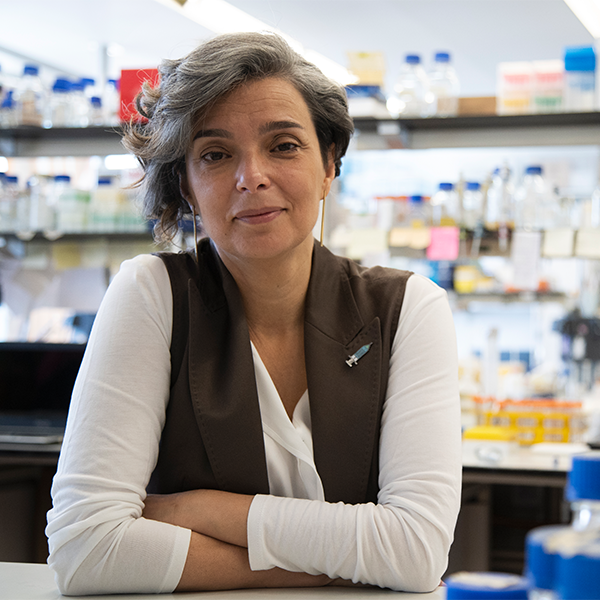
PT//
Maria Manuel Mota obteve a sua licenciatura em Biologia e o seu mestrado em Imunologia em 1992 e 1994, respectivamente, na Universidade do Porto, Portugal, seguida de um doutoramento em Parasitologia Molecular pelo University College London em 1998. Em seguida, realizou os seus estudos de pós-doutoramento sobre as interações hospedeiro-parasita no laboratório de Victor Nussenzweig na Faculdade de Medicina da Universidade de Nova Iorque, de 1999 a 2002. Neste ano, regressou ao seu país de origem, Portugal, para se tornar líder de grupo, inicialmente no Instituto Gulbenkian de Ciência (IGC), e posteriormente no Instituto de Medicina Molecular (iMM), onde se tornou Diretora Executiva em 2014.
EN//
Maria Manuel Mota obtained her BSc in Biology and her MSc in Immunology in 1992 and 1994, respectively, at the University of Porto, Portugal, followed by a PhD in Molecular Parasitology by the University College London in 1998. She then carried out her post-doctoral studies on host-parasite interactions in Victor Nussenzweig’s lab at the New York University Medical School from 1999 to 2002. On this year, she returned to her home country of Portugal to become a group leader, initially at Instituto Gulbenkian de Ciência (IGC), and subsequently at Instituto de Medicina Molecular (iMM), where she became the Executive Director in 2014.
Joana Magalhães
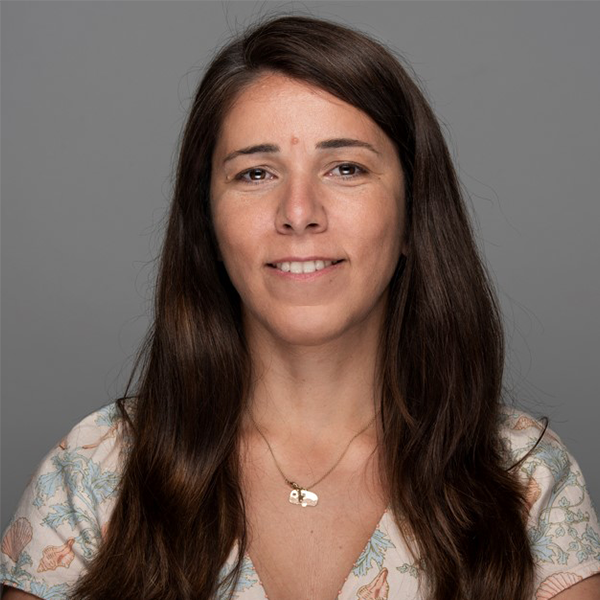
PT//
Joana Magalhães é uma investigadora independente e gestora de projetos na Science for Change, no campo da ciência cidadã. Tem um doutoramento em Bioquímica e Biologia Molecular obtido sob uma bolsa Marie Curie. Tem mais de uma década de experiência em investigação biomédica nos campos dos biomateriais, engenharia de tecidos e doenças músculo-esqueléticas. Em paralelo com a sua carreira científica, desenvolveu estratégias de comunicação científica com os meios de comunicação social a partir de uma perspectiva de género. Foi cientista convidada na residência de TRANSCENICA – New Transmedia Creators.
EN//
Joana Magalhães is an independent researcher and project manager at Science for Change, in the field of citizen science. She holds a PhD in Biochemistry and Molecular Biology obtained under a Marie Curie Fellowship. She has more than a decade of experience in biomedical research on the fields of biomaterials, tissue engineering and musculoskeletal diseases. In parallel to her scientific career, she developed science communication strategies with the media from a gender perspective. She was an invited scientist at the TRANSCENICA – New Transmedia Creators residency.
Cristin Millett
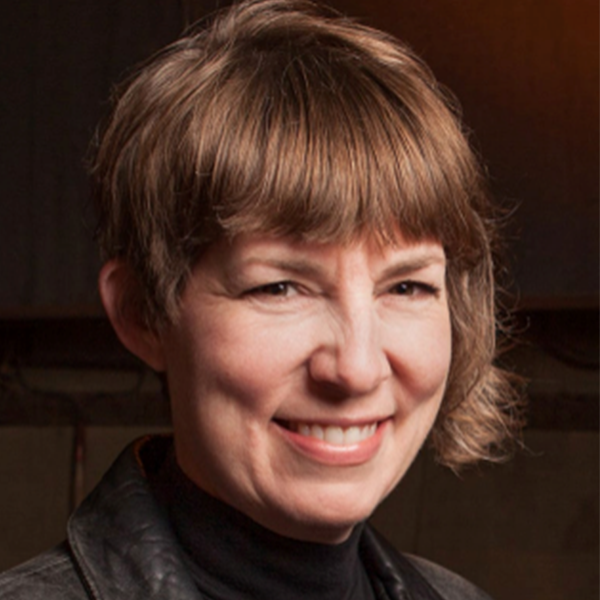
PT//
Ultrapassando as fronteiras disciplinares tradicionais, as investigações de Cristin Millett sobre a medicina e a sua história são parte integrante do seu processo artístico. Como artista transdisciplinar, o seu trabalho examina a intersecção da arte e da ciência, especificamente processos escultóricos e futuros reprodutivos. Os seus objetos e instalações escultóricas suscitam uma crítica cultural contemporânea das questões sociais em torno da reprodução e da identidade de género. Criada em El Paso, Texas, Millett iniciou os seus estudos profissionais aos 16 anos de idade na University of North Carolina School of the Arts. Recebeu o seu BFA da Kent State University e o seu MFA da Arizona State University. O seu trabalho artístico foi amplamente exposto, incluindo na Villa Strozzi, Florença; no Museu Internacional de Ciência Cirúrgica, Chicago; no Exploratorium, São Francisco; e no Mütter Museum, Filadélfia. Millett é Investigadora da Faculdade Embarcada na Incubadora de Artes + Pesquisa de Design e Professora de Arte na Escola de Artes Visuais da Penn State. Em 2020, Millett foi Bolseira Fulbright e Residente no SymbioticA na Universidade da Austrália Ocidental.
EN//
Straddling traditional disciplinary boundaries, Cristin Millett’s investigations of medicine and its history are integral to her artistic process. As a transdisciplinary artist, her work examines the intersection of art and science, specifically sculptural processes and reproductive futures. Her sculptural objects and installations prompt a contemporary cultural critique of societal issues surrounding reproduction and gender identity. Raised in El Paso, Texas, Millett began her professional studies at the age of 16 at the University of North Carolina School of the Arts. She received her BFA from Kent State University and her MFA from Arizona State University. Her artwork has been widely exhibited, including at the Villa Strozzi, Florence; the International Museum of Surgical Science, Chicago; the Exploratorium, San Francisco; and the Mütter Museum, Philadelphia. Millett is an Embedded Faculty Researcher in the Arts + Design Research Incubator and a Professor of Art in the School of Visual Arts at Penn State. In 2020, Millett was a Fulbright Senior Scholar and Resident at SymbioticA at the University of Western Australia.
Cynthia White
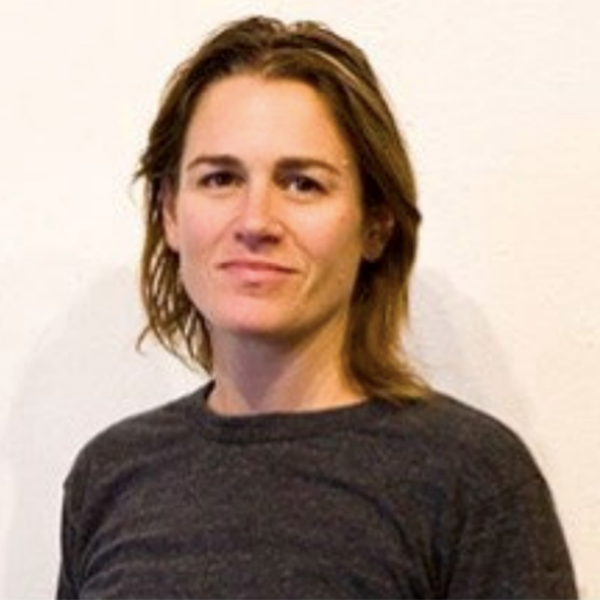
PT//
Cynthia White é uma cineasta e artista multimédia cujo trabalho foi exibido, transmitido e apresentado em conferências e festivais nos EUA, Austrália, Europa, e América Latina. Para além dos prémios dos festivais, recebeu financiamento e residências artísticas através de agências governamentais e académicas tanto na Austrália como nos EUA. White é atualmente Associada Adjunta de Investigação na Incubadora de Investigação em Artes e Design (ADRI) na Universidade Estatal da Pensilvânia. Através de narrativas visuais, ela esforça-se por elevar o trabalho de colaboração entre os investigadores em artes e as ciências médicas e biológicas. Ela trabalha no Comité Executivo de Microbiologia do Penn State como defensora da investigação baseada nas artes e ensina em filmes documentais e na prática social.
EN//
Cynthia White is a filmmaker and multimedia artist whose work has been screened, broadcast and presented at conferences and festivals in the US, Australia, Europe, and Latin America. In addition to festival awards, she has received funding and artist residencies through government and academic agencies both in Australia and the US. White is currently an Adjunct Research Associate at the Arts and Design Research Incubator (ADRI) at Pennsylvania State University. Through visual narratives, she strives to elevate the collaborative work between arts researchers and the medical and biological sciences. She serves on the Penn State Microbiome Executive Committee as an arts-based research advocate and teaches in documentary film and social practice.
